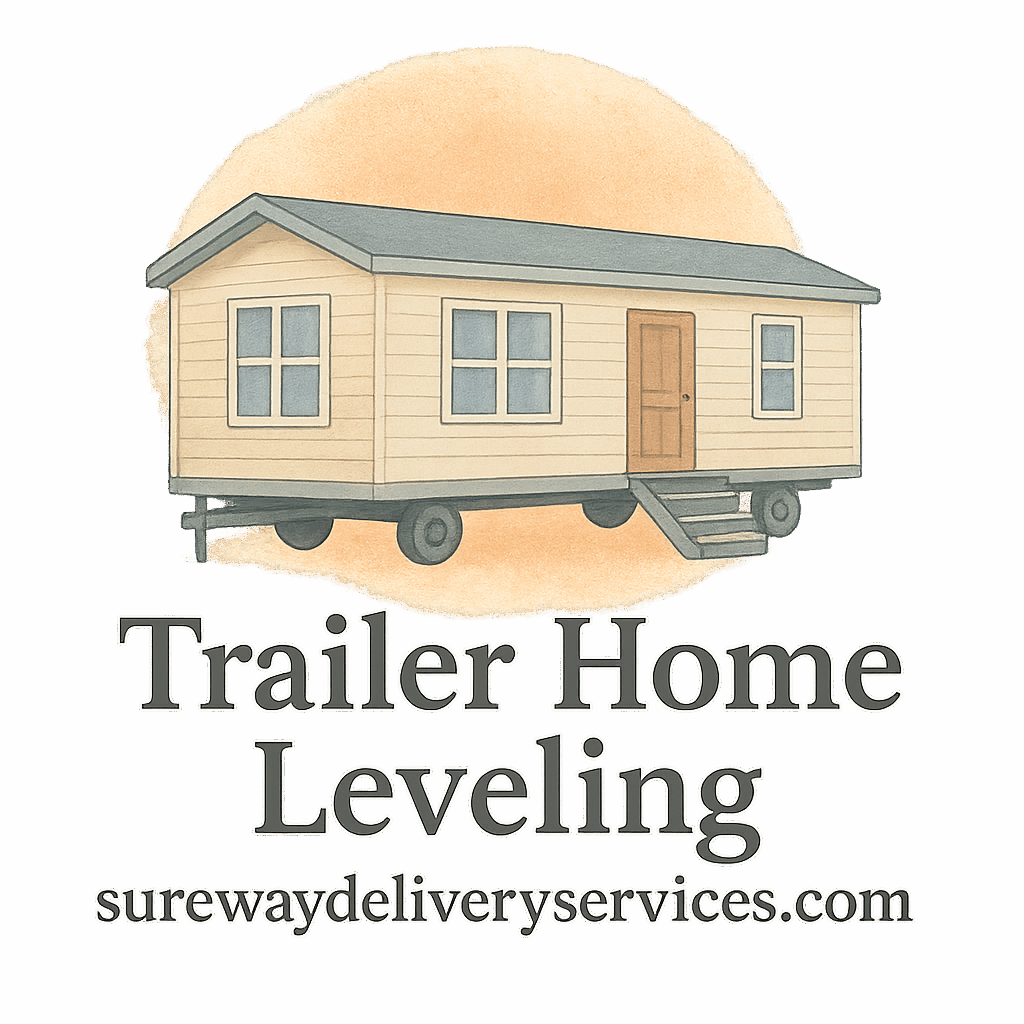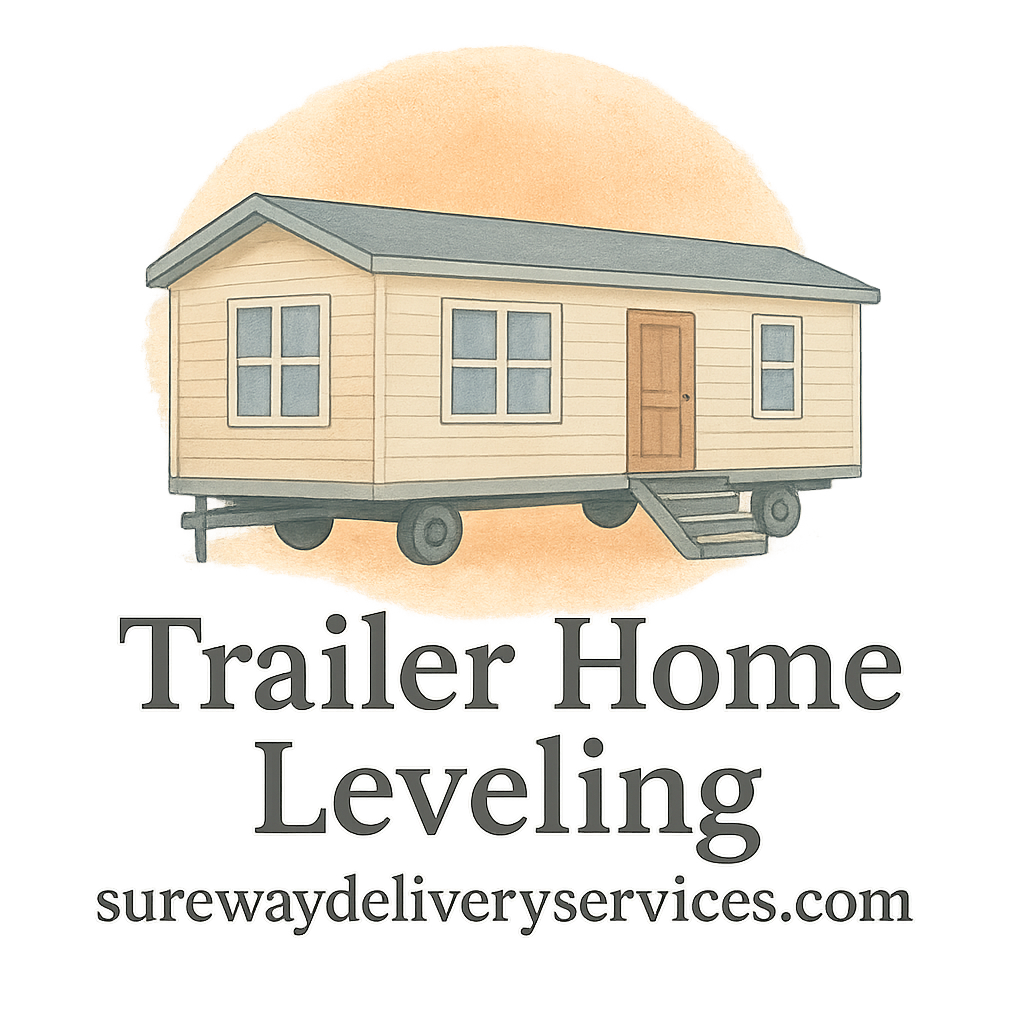Introduction to Trailer Home Leveling
So, you’ve probably heard some chatter about trailer home leveling—but how much of it is actually true? There’s a lot of misinformation floating around out there, and it’s easy to fall for myths if you’re not careful. In this article, we’ll bust the most common myths about trailer home leveling and set the record straight, once and for all.
We’ll also drop some pro tips and helpful resources along the way, like the excellent guides over at Trailer Home Leveling.
What Is Trailer Home Leveling?
Trailer home leveling is the process of ensuring that your mobile or manufactured home sits evenly on its foundation. Over time, homes can shift due to soil changes, water damage, or even just normal wear and tear.
Why It Matters
When your home is out of level, it can cause more than just a crooked floor. You might start seeing cracks in walls, doors that won’t close, or even plumbing issues. That’s why leveling is a must-do maintenance task, not a luxury.
Want to start with the basics? Check out this introductory guide that breaks it all down.
Myth #1: Trailer Homes Don’t Need Leveling
The Truth About Settling
One of the most dangerous assumptions is thinking your trailer is immune to the laws of nature. All structures settle. Trailer homes, especially those on pier and beam foundations, will shift and sink over time.
Ignoring this can lead to serious long-term damage.
Link to Inspection & Maintenance Importance
Annual checks and scheduled maintenance are essential. Visit the inspection and maintenance section to learn how to prevent big problems with small efforts.
You can also check these useful tags for more:
👉 Inspection
👉 Maintenance
Myth #2: Leveling Is a One-Time Job
Settling Happens Over Time
Unfortunately, trailer leveling isn’t a “set-it-and-forget-it” kind of thing. Soil under your home can erode, compress, or shift with weather changes. Over time, this throws your house out of alignment.
Importance of Annual Inspections
Get into the habit of doing a yearly checkup. This annual maintenance checklist is a lifesaver. Preventing issues is always cheaper than fixing them.
Myth #3: DIY Leveling Is Just as Good
Dangers of DIY Leveling
Sure, you can try leveling your trailer with a few jacks and some wood blocks—but should you? Not really.
Improper leveling can make things worse, especially if you’re using the wrong techniques or materials.
Tools, Jacks, and Professional Equipment
Professional leveling teams use specialized tools. If you’re curious, explore these tags for more info:
🔧 Jacks
🔧 Tools
🔧 Techniques & Methods
And if you decide it’s too risky to do it yourself (hint: it usually is), here’s how to hire a pro.

Myth #4: It’s Always Expensive
Understanding Cost and Budgeting
Many people hesitate to level their trailer because they assume it’ll break the bank. That’s not always true.
Costs vary, and if you’re educated about the process, you can save money. Learn how to estimate a realistic cost and budget here.
Tips to Avoid Overcharges
There are ways to avoid getting overcharged. Check these out:
💸 Overcharge
💸 Price
💸 Cost Tips
Myth #5: All Leveling Services Are the Same
Not All Service Packages Are Equal
Just like with any home service, quality matters. Some companies offer full-service packages, others cut corners. Don’t just go with the cheapest bid.
Reading Reviews and Recommendations
Check for genuine customer feedback. These tags help:
📝 Customer Reviews
📝 Recommendations
📝 Service Package
Myth #6: Uneven Floors Are Just Cosmetic
Structural and Safety Concerns
Sure, a slanted floor might look quirky. But underneath, it could signal failing piers, cracked beams, or shifting soil. Left alone, these issues threaten the entire structure.
Long-Term Damage Signs
Cracks, squeaky floors, plumbing leaks—all are red flags. Learn what trailer issues to spot and when to act.
Myth #7: You Can Wait Until It’s Obvious
Subtle Signs to Watch For
Waiting until doors stop closing or windows get jammed is a mistake. Subtle early signs include:
- Tiny wall cracks
- Sinking skirting
- Creaky floors
Checklist for Early Trailer-Leveling Indicators
Use this handy checklist to catch problems before they grow.
Also worth reviewing:
✅ Signs
✅ Trailer Details
The Right Techniques and Tools
Popular Trailer Leveling Methods
Not all methods are created equal. Common ones include:
- Hydraulic jack leveling
- Concrete pier adjustment
- Adjustable steel piers
Want a deep dive? Explore proven techniques and methods.
When to Hire a Professional
Still unsure? Here’s your sign to hire an expert. They’ve got the know-how, gear, and experience to get it done right.
Conclusion: Don’t Fall for the Myths
Trailer home leveling might not be the flashiest topic out there, but it’s absolutely essential if you want your home to stay safe, stable, and comfortable.
Don’t let myths cost you peace of mind—or worse, major repair bills. Be proactive, do your homework, and partner with pros when needed. Your trailer—and your wallet—will thank you.
Looking for more? Dive into the full archive at Trailer Home Leveling and discover expert tips, service advice, and real-life success stories.
FAQs
1. How often should I level my trailer home?
Ideally, once a year. Soil shifts can happen slowly and you might not notice until damage sets in. Use the annual checklist for guidance.
2. What tools are required for trailer leveling?
You’ll need jacks, leveling blocks, and a good level. But professional tools found here are often more accurate and safer.
3. Can I level my trailer without professional help?
You can try, but it’s risky. If you’re not trained, you might make it worse. It’s best to consider a service professional.
4. What are the signs that my trailer is unlevel?
Sticky doors, cracked walls, and uneven floors are top signs. See more signs to watch.
5. Is trailer leveling covered in service packages?
Yes! Most professional services offer full service packages that include inspection, leveling, and repairs.
6. How much does trailer home leveling typically cost?
Costs vary, but understanding cost and budgeting helps you plan better.
7. What’s the risk of delaying trailer home leveling?
Small issues become big ones—fast. Think broken pipes, sagging frames, or even full-on tilts. Prevention is cheaper than repair.


